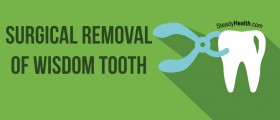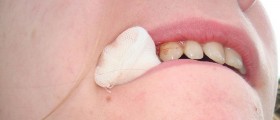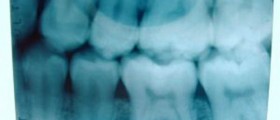
After wisdom tooth extraction, as in any other case of tooth extraction, blood normally fills the open socket. This blood coagulates and this way prevents underling structures until the wound completely heals. In case there are no complications the gums completely grow over the open socket. However, in case of a wisdom tooth dry socket the blood which eventually coagulates and forms a blood clot does not stay in a desirable position and is lost for some reason. This condition is known as a wisdom tooth dry socket. The gums simply cannot grow over the wound since there is no blood clot. The socket remains open and causes certain problems. Patients suffering from a wisdom tooth dry socket most commonly complain about pain, bad taste in the mouth and foul smelling breath. The pain may be so intensive and even radiate towards the ear. The problems connected to a wisdom tooth dry socket start a few days after the tooth extraction and linger for a week.
Causes of a Wisdom Tooth Dry Socket
The actual cause of a wisdom tooth dry socket is still unknown. The condition predominantly affects lower wisdom teeth. Furthermore, it affects women more than men. A wisdom tooth dry socket occurs more after a difficult tooth extraction. In this case while the tooth is being removed there is a chance of damaging the nearby blood vessels that are in charge with formation of a blood clot. The walls of blood vessels collapse and the blood does not fill the socket properly. A wisdom tooth dry socket also occurs if the already formed blood clot is somehow dislodged. Dislodging may be induced by forceful spitting and rinsing of the oral cavity or sucking through a straw. And finally, smoking may interfere in process of blood clotting and lead to a wisdom tooth dry socket.
Treatment and Prevention of a Wisdom Tooth Dry Socket
The pain caused by dry socket is usually alleviated with pain killers and the wound is left to heal on its own. The condition subsides and the symptoms tend not to last more than a week. Still, some dentists choose to pack a socket with medications which may decrease the pain. This may be effective the moment the medication is placed into the socket but once its effects wear off the pain can become even more intensive.
Prevention of a wisdom tooth dry socket is achieved by a gentle removal of a wisdom tooth and reduction of damage to the surrounding tissues. Furthermore, patients are advised not to spit and rinse their mouth forcefully and they are forbidden to drink carbonated beverages for certain period of time. This way dislodging of the blood clot can be successfully prevented.

















Your thoughts on this
Loading...